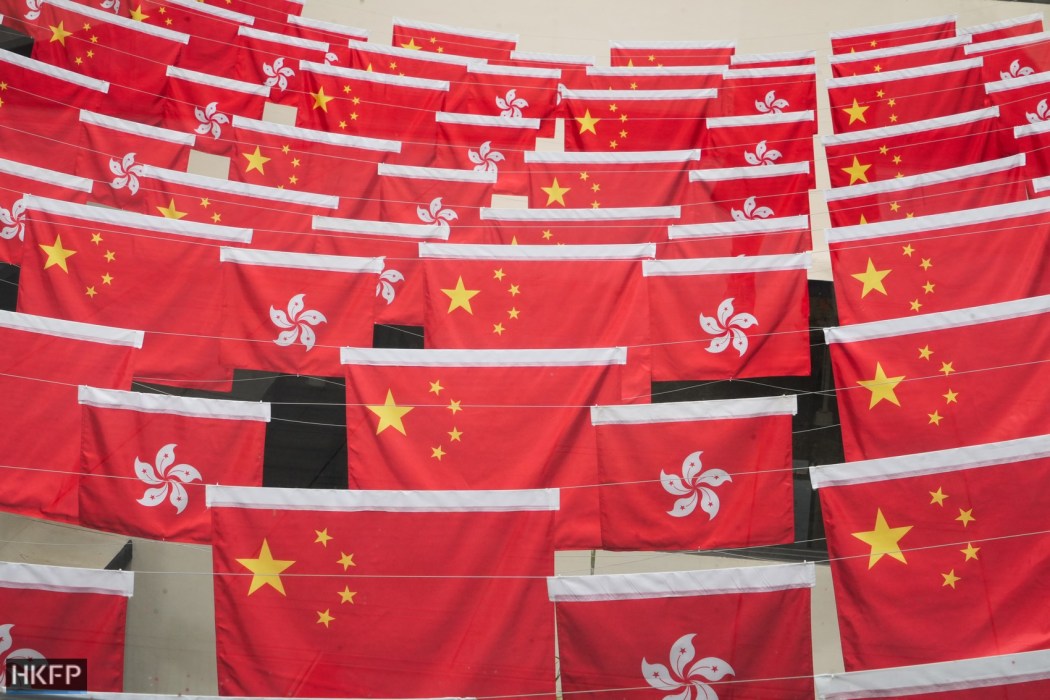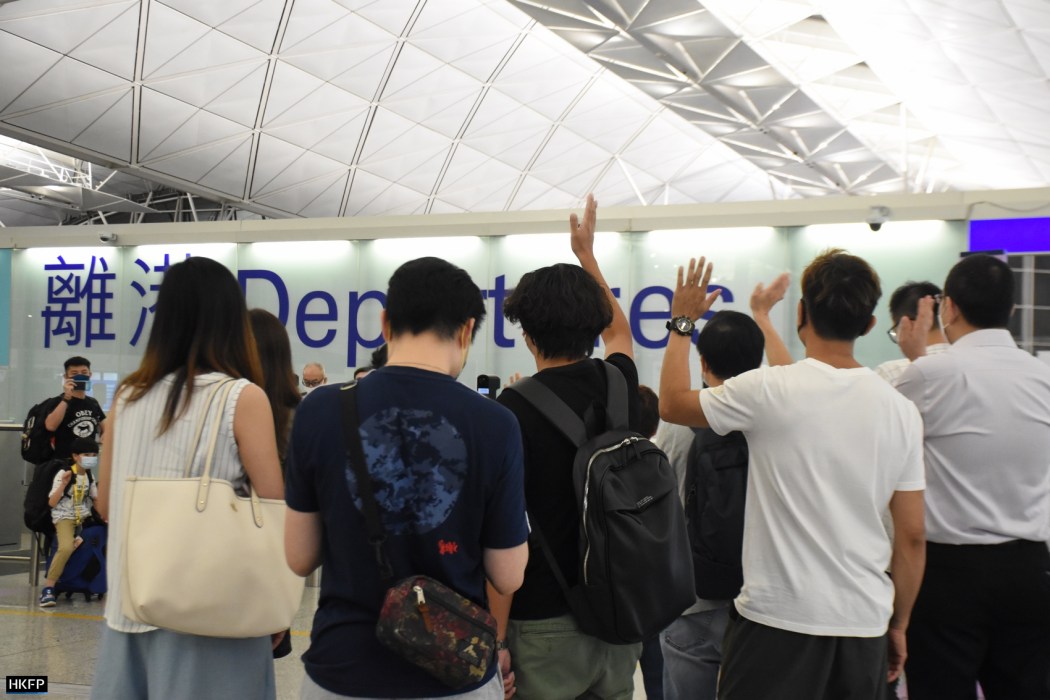Chief Executive John Lee delivered his maiden Policy Address on Wednesday. During one of the longest addresses yet, the former police officer vowed to “start a new chapter” for the city.

But how much of what Lee laid out was truly new, and how much of it was old wine in new bottles?
The tale of two development schemes
Lee’s predecessor Carrie Lam introduced two mega development projects during her tenure, which received distinctly different attention in Lee’s Policy Address.
The controversial Lantau Tomorrow Vision, an upgraded and renamed version of a project proposed by former chief executive Leung Chun-ying, was announced in Lam’s 2018 Policy Address. Estimated to cost HK$624 billion, the plan involves building artificial islands off Lantau, providing up to 400,000 residential units for 1 million people.
The proposal attracted heated debate, raising concerns over the price tag and its potential environmental impact, with critics saying that there were other alternatives available, such as the development of brownfield sites.
By the time it came for Lam to deliver the final Policy Address of her term last year, Lantau Tomorrow Vision warranted few mentions. Instead, another grand development project – Northern Metropolis – was introduced.

The metropolis, set to be built near Hong Kong’s border with mainland China, will span around 300 square kilometres, and is estimated to provide 900,000 homes to around 2.5 million people.
Just over a year after Northern Metropolis made its debut, Lee that a steering committee and an advisory committee will be set up to “strengthen the governance system” of the area’s development.
“The current-term Government will take forward the development of the Northern Metropolis in full steam,” the chief executive said.
The term “Lantau Tomorrow Vision,” on the other hand, did not feature at all in Lee’s Policy Address. That was not to say, though, that the scheme had been abandoned. The chief executive dedicated a section of his speech to the Kau Yi Chau Artificial Islands, 1,000-hectare “a financial, commercial and trade centre” off the coast of Lantau.

“We will put forth proposals on the scope of reclamation, land use, transport infrastructure network and financing options regarding the artificial islands within this year,” Lee said. “Our target is to commence the EIA process next year and kick-start the reclamation works in 2025.”
When asked by reporters if the scale of reclamation would be the same as that proposed for Lantau Tomorrow by the previous administration, Lee said that he would forge ahead with the project.
“Because of the urgency, we only focused on pushing forward the reclamation plan of the Kau Yi Chau Artificial Islands at the Legislative Council,” Lee said.
Missing legislation
Lam listed 40 legislative proposals in her last Policy Address. While some, such as a bill to stop employers from taking people’s severance pay from their pension funds, has since been approved by the legislature, Lee has been criticised for back-pedalling on the promise of implementing Hong Kong’s own security law.
Article 23 of the Basic Law stipulates that Hong Kong must legislate its own security law to outlaw offences such as treason and sedition, in addition to the existing Beijing-imposed national security law and the colonial-era sedition law.

All previous attempts to enact Article 23 since the city’s return to Chinese rule have stalled. A mass march in 2003 against the legislation eventually led to the resignation of then-secretary for security Regina Ip.
During his election campaign, Lee said that legislating a local security law was a priority. However, his administration has since pulled the proposal from this year’s legislative schedule.
Pro-Beijing lawmaker Junius Ho criticised the chief executive for the lack of a timetable for the implementation of Article 23, but Lee said that the government needed time to conduct an extensive study of other countries’ security laws to ensure the effectiveness of Hong Kong’s own legislation.
Recognising the exodus
Hong Kong has experienced a mass outflow of residents since the start of the Covid-19 pandemic and the implementation of the national security law.
The previous administration disputed the scale of the exodus, with Lam attributing it to the suspension of quarantine-free travel with mainland China, saying that the number of One-Way Permit holders coming into Hong Kong had significantly decreased.

Lee, who has been pressured to stop the exodus of talent from the city, acknowledged the trend for the first time on Wednesday, admitting that the local workforce had shrunk by 140,000 people over the last two years. Lee had previously rejected the use of the term “emigration wave” to describe the city’s recent and dramatic population decline.
While Lam said that she did not want the government to be asking citizens to stay, Lee presented a series of proposals on Wednesday, ranging from new visa schemes to stamp duty cuts, designed explicitly to attract talent.
‘Repackaged’ transitional housing
Lee’s debut Policy Address drew criticism from non-governmental groups for its lack of measures to tackle poverty and ineffective housing policies.
Libre Research Community called the Light Public Housing scheme proposed by Lee a “repackaging” of the existing transitional housing, with the Democratic Party echoing the comments, saying that Lee was “playing with words and maths” with the promise of reducing waiting time for public housing.
Despite the criticisms and a record-low satisfaction rate on his proposal, pro-Beijing lawmakers have heaped praise upon Lee’s Policy Address, and his proposals are expected to meet with much less resistance than those of his predecessors, with the opposition camp missing from the Legislative Council following an electoral overhaul.
Support HKFP | Policies & Ethics | Error/typo? | Contact Us | Newsletter | Transparency & Annual Report | Apps
Help safeguard press freedom & keep HKFP free for all readers by supporting our team

LATEST FROM HKFP
HKFP has an impartial stance, transparent funding, and balanced coverage guided by an Ethics Code and Corrections Policy.
Support press freedom & help us surpass 1,000 monthly Patrons: 100% independent, governed by an ethics code & not-for-profit.










